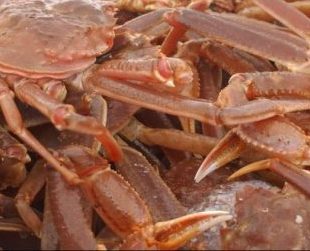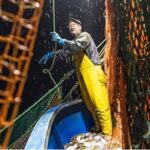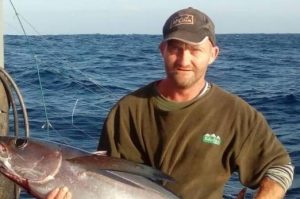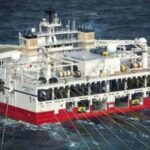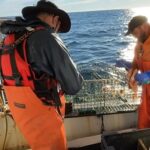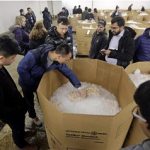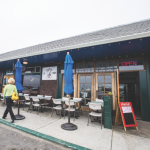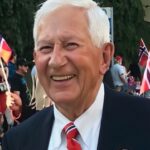Tag Archives: Keith Sullivan
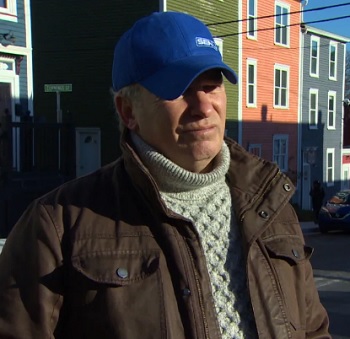
Outgoing FFAW president denies conflict of interest over wife’s work with Nalcor
Keith Sullivan says his departure from the Fish, Food & Allied Workers union has nothing to do with allegations his wife was in a conflict of interest over a controversial agreement with scallop harvesters 10 years ago. Ryan Cleary, the most vocal critic of Sullivan throughout his tenure as FFAW-Unifor boss, posted an article on his blog Thursday evening that raised the allegations publicly for the first time. Cleary obtained documents through access-to-information requests that show Roseann Williams who is married to Sullivan, was part of a four-person negotiating team that worked opposite the FFAW in 2012 and 2013, while Sullivan was an assistant to the union’s president. The two sides negotiated a deal to compensate fish harvesters on the Northern Peninsula over the loss of valuable scallop fishing grounds to a subsea power cable laid by Nalcor Energy. >click to read< 10:03
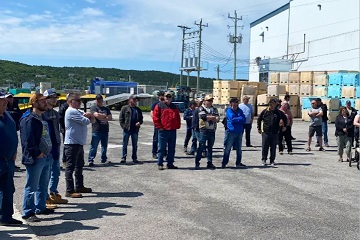
Profit over people: Royal Greenland isn’t here to help Newfoundlanders
Jarding’s assertion that Royal Greenland truly wants product landed and processed in Newfoundland and Labrador has proven to be categorically false. The company, a Crown corporation of the country of Greenland, flatly refused to buy shrimp from NL harvesters at a fair price earlier this summer, telling harvesters if they wanted to fish, they must bring their product all the way to Quebec if they wanted a buyer. Why could the Royal Greenland plants in Quebec pay double the price for the same product? Why did Royal Greenland refuse to pay the same to NL harvesters? These are the key questions Mr. Jarding has conveniently sidestepped. >click to read< 11:45
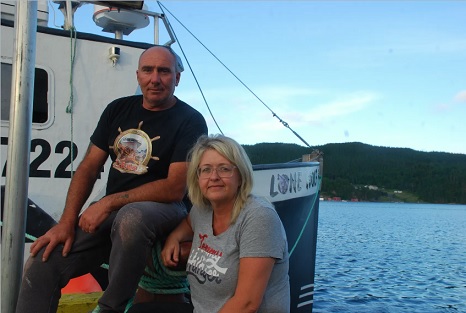
Multi-million dollar capelin fishery is a bust for eastern Newfoundland
The Lone Wolf is lying idle at the wharf in Hickman’s Harbour, Trinity Bay. The only sound is the lap of water against hull, the occasional screech of sea gulls flying past, hunting for food. Earlier this year the Department of Fisheries and Oceans (DFO) set a quota of around 15,000 metric tonnes for fishing zones from the south coast (area 3Ps) to the North East coast (2J, 3K and 3L zones). Inshore licenses, like the one the Marshes have, grant them just 12,000 pounds of crab. “This year we landed $82,000 worth,” she said. And that’s not a whole lot of money to pay a crew and cover the expenses of running a boat. “Last year I could fuel up my boat for $800,” she noted. “This year it costs $1600.” Capelin could have added another $30-40,000 to their seasonal revenue, making it the second most important fishery for their enterprise. But they’re not fishing it. Why not? It’s complicated. >click to read< 11:05
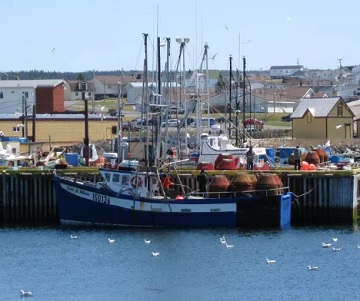
We’re not going anywhere — FFAW
According to Mr. Butler, fish harvesters in Newfoundland and Labrador are living like kings and queens while the poor processing companies struggle to balance the books. It’s a tale that’s been spun by Butler and his cronies with the Association of Seafood Producers since the onset of the COVID-19 pandemic. Ah yes, Derek Butler, champion of corporate profits, knows much about the rich shrimp harvesters of the Northern Peninsula (who, by the way, have no access to crab). They haven’t been able to sell their shrimp for enough to make ends meet, while the same companies buy the exact same product for over 50 per cent more at their facilities in Quebec. >click to read< 07:44
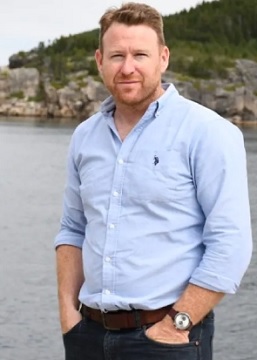
I was a kid when the moratorium started. As a union leader, I’m still fighting for change
Three decades have come and gone since the cod moratorium in Newfoundland and Labrador was announced on that fateful day in 1992. I was just 12 years old growing up in Calvert at the time, and the cod fishery was the heart and soul of the Southern Shore from Trepassey to Bay Bulls, just like the communities so many of you called home. My family remained in the fishery after the moratorium, but many others did not. More than 30,000 people lost their livelihoods that day and the landscape of our province was forever changed. By Keith Sullivan >click to read< 13:57
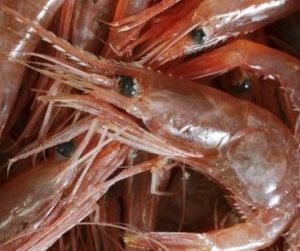
Northern Peninsula Shrimp Fleet Facing Crisis
The 4R shrimp fleet met in Hawke’s Bay today to discuss the assault on inshore owner-operators by the Association of Seafood (ASP) and their member companies, and the complete lack of support from provincial departments responsible. The 4R fleet on the northern peninsula are in a unique, troubling circumstance – they have no access to other species and the viability of their enterprise is dependent solely on shrimp. Without a price based on fair market values, harvesters will be unable to breakeven this year and many will face bankruptcy,” explains Keith Sullivan, FFAW-Unifor President. “Companies have attempted to manipulate the collective bargaining process with most fisheries this year. Working together like a cartel, they are attempting to erode solidarity by putting harvesters in a very desperate situation. >click to read< 09:57
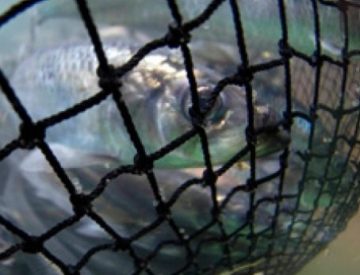
Ottawa announces closure of Atlantic mackerel, bait fisheries to restore stocks
Fishers on the East Coast are expressing their disappointment with Ottawa after DFO closed the Atlantic mackerel and commercial bait fisheries, citing concerns that dwindling stocks have entered a “critical zone.” The department said in a release Wednesday it was taking “urgent action” to help preserve the stock of southern Gulf spring herring and Atlantic mackerel with the closures in Atlantic Canada and Quebec. Fisheries Minister Joyce 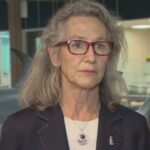 Murray said she recognizes many harvesters depend on the fisheries, and she promised to work with them and others in the industry to preserve the stocks. Fishers in the sector, however, want the decision reversed. Martin Mallet, “It’s going to have a major impact — an atomic bomb impact — on our whole East Coast fishery, from Newfoundland to Quebec to southwest Nova Scotia,” >click to read< 18:52
Murray said she recognizes many harvesters depend on the fisheries, and she promised to work with them and others in the industry to preserve the stocks. Fishers in the sector, however, want the decision reversed. Martin Mallet, “It’s going to have a major impact — an atomic bomb impact — on our whole East Coast fishery, from Newfoundland to Quebec to southwest Nova Scotia,” >click to read< 18:52

Hundreds of Newfoundland fishermen protest prices, pressing minister for changes
Fishermen from across the Avalon Peninsula took their complaints and concerns about pricing for this year’s inshore fishery straight to Fisheries Minister Derrick Bragg in St. John’s on Monday, with a concurrent protest happening in Corner Brook. For fish harvesters like Conway Caines, the $12 per pound in Cape Breton this season is proof enough harvesters in Newfoundland and Labrador deserve more than last year’s $7.60 a pound. The Port Saunders man said he managed to get by in 2021 but said that price isn’t good enough given the higher cost of living this season. “I ain’t got no big quotas. I got enough to pay me instalments, feed me family and try to give me crew a decent share.” >click to read< 08:45
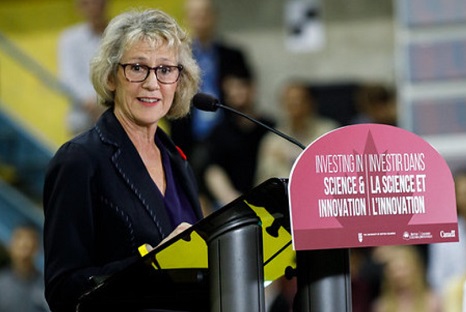
Harvesters Warn of ‘Dire Effects’ as Minister Aims to Protect Fish Stocks from Climate Disruption
A recent appearance by Fisheries Minister Joyce Murray at an industry annual meeting has set off a sea squall of controversy, with harvesters and unions warning of the “dire social and economic effects” of federal catch limits and Murray stressing her interest in keeping fish stocks sustainable in an era of climate disruption. The unions representing fish harvesters on Canada’s east and west coasts claim her remarks to the annual general meeting of the Canadian Independent Fish Harvesters Federation (CIFHF) reflected a “singular focus on ocean conservation” at the cost of workers whose livelihoods rely on the fishery industry. >click to read< 15:38

DFO to Release Latest Assessment of Northern Shrimp Stocks
DFO will provide an update this morning on its latest assessment of northern shrimp stocks in the waters surrounding Newfoundland and Labrador and the FFAW will be watching very closely Fisheries Union President Keith Sullivan says they’ll be interested in seeing whether the information and concerns provided by harvesters, particularly as it relates to the Sustainable Fisheries Framework are reflected in today’s announcement. >click to read< 10:27
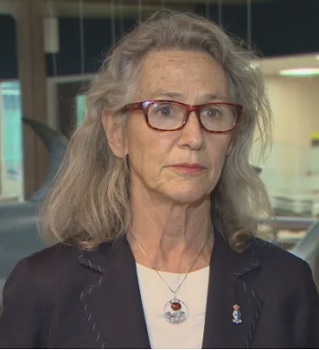
FFAW “Shocked” by Federal Fisheries Minister’s Comments on Climate Change
The union says Minister Murray put forward her ideas and vision for the east coast fishery at the Canadian Independent Fish Harvesters Federation annual meeting. She outlined her goal to leave as many fish in the water as possible and to grow as much vegetation in the water as possible so that the Atlantic Ocean can better absorb carbon to combat climate change. She indicated that fish harvesters would have to accept the sacrifice as part of Canada’s commitment to fight climate change and noted that with technological advancements harvesters could change career paths and work remotely from their homes. >click to read< 08:29
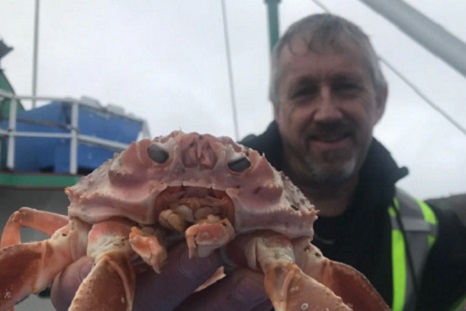
Record crab and lobster prices drive value of N.L. landings past billion-dollar mark
“It was remarkable,” Doyle says, referring to the $7.60 per pound, more than double last year’s price, Doyle and his son Thomas received for the roughly 16,000 pounds of snow crab they landed with their under-40-foot vessel, Tango Delta, this year. “In regard to prices, it’s better than I’ve ever seen it,” adds Doyle, adding that they also received record prices for their lobster landings. It’s not hard to hear upbeat language like that when talking to Newfoundland and Labrador fish harvesters this year, because their bank accounts were likely swollen by incomes of 40 to 50 per cent higher than past years. >click to read< 09:33
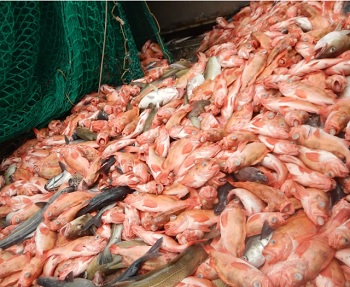
The redfish fishery is returning. So is angst about quotas for inshore harvesters
A coalition led by the union representing workers in Newfoundland and Labrador’s fishing industry is sounding the alarm about plans for an emerging commercial redfish fishery, saying there are big concerns about potential quotas for inshore harvesters.,, That process is favouring the offshore sector, according to the president of the Fish, Food and Allied Workers union, and forgetting the inshore harvesters when it comes to redfish. Keith Sullivan and the FFAW spoke out at Thursday on behalf of a coalition that includes inshore harvester associations, Indigenous groups and seafood processors in Atlantic Canada. >click to read< 09:17
The NLGIDC Supports the Position of an Inshore Fisheries Coalition on the New Redfish Fishery – >click to read<

Water content deductions keeping harvesters sitting out the summers sea cucumber fishery
Sea cucumbers represent a $10-million industry in Newfoundland and Labrador, according to Fish Food & Allied Workers president Keith Sullivan. The creatures are a delicacy in Asian countries and other markets, and fetch a price of 70 cents per pound, according to the province’s fishery pricing panel. When catches are landed, processors drain the water inside sea cucumbers to remove the weight of the sea water from the buying price. 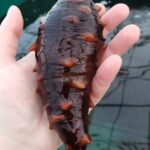 Harvesters used to deduct 23 per cent of the sea cucumber’s weight across the board to account for the water, but that percentage has been changed in the past year, and Sullivan says the harvesters’ bottom lines are being impacted. “Whereas other years you might be getting paid for 80 per cent or close to that of the animal, this year in a couple of cases we’re talking just over 50 per cent,” >click to read< 11:43
Harvesters used to deduct 23 per cent of the sea cucumber’s weight across the board to account for the water, but that percentage has been changed in the past year, and Sullivan says the harvesters’ bottom lines are being impacted. “Whereas other years you might be getting paid for 80 per cent or close to that of the animal, this year in a couple of cases we’re talking just over 50 per cent,” >click to read< 11:43
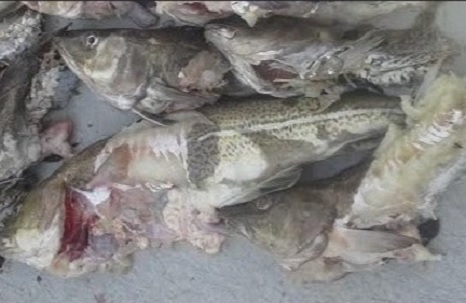
“DFO operates in denial of Reality”- Scientist says seal predation not having a significant impact on spawning cod stocks
Instead, Karen Dwyer, weighing in on the contentious debate over the health of cod stocks, said Thursday that environmental factors and a limited supply of the cod’s primary food source — capelin — are more to blame.,, Trinity Bay fisherman Keith Smith said DFO continues to downplay the impact of seal predation on cod. “It’s like DFO operate in denial of reality,” Smith said. “Fishing mortality is at an all-time low while natural mortality, likely led by the growing seal population that consumes vast amounts of both capelin and cod, remains high,”,,, >click to read< 11:04
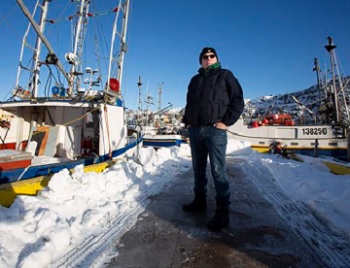
Is politics getting in the way of rebuilding a sustainable fishery in Newfoundland?
The sentinel program, created after the cod moratorium in 1992 to monitor fish populations, is run exclusively by the Fish Food & Allied Workers, the powerful union that represents around 15,000 fishermen, fish plant employees and other workers in the province. DFO relies on data from the sentinel fishery to help assess fish stocks, and has paid the union millions to run the program. “The FFAW and the DFO are cheating the fishermen out of a resource that belongs to the people of Newfoundland,” said Jason Bateman, a former enforcement officer with DFO. Ryan Cleary, a former member of Parliament for St. John’s-Mount Pearl and an outspoken critic of the FFAW, said the union has found a way to prosper since the collapse of cod by integrating itself into fisheries management, acting almost as a regulator, while becoming a vocal industry voice that contradicts science. >click to read< 17:55
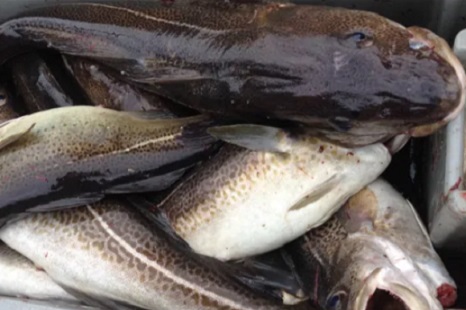
DFO has a new plan for northern cod stocks. It doesn’t include more fishing
The rebuilding plan, made public with little fanfare on Dec. 21 after years in development, outlines the Department of Fisheries and Ocean’s objectives to boost fish numbers and the management techniques it intends to use to measure any progress starting in 2021. Northern cod numbers have ticked upwards since the 1992 moratorium brought harvesting and processing to a screeching halt. A small stewardship fishery now exists, with 1,865 licence holders allotted a maximum harvest of around 12,000 tonnes of cod in 2020. But 28 years later, stocks remain well below pre-moratorium levels, and in DFO terminology, remain squarely in a “critical zone.” >click to read< 11:15
Inadequate Assessment by DFO Leaves Harvesters with Rollover for 2020 Cod Catch Limits
The Department of Fisheries and Oceans (DFO) announced the management plan for northern cod yesterday evening, revealing a rollover in the total allowable catch from last year. The rollover is a result of an inadequate assessment that failed to take into account important data as well as harvester observations – the result of which will have dire impacts on an already suffering inshore fishery. “ A rollover for this year’s quota is completely unacceptable and must be reconsidered by DFO before the season opens,” says Keith Sullivan, FFAW-Unifor President.>click to read< 13:29
DFO‘s Lack of a Full Assessment Leads to a Roll-over in the Allowable Harvest of the Stewardship Cod Fishery for 2020 – The Newfoundland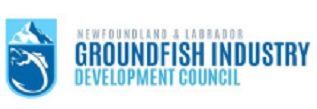 and Labrador Groundfish Industry Development Council (NL-GIDC) believes that the rollover in the allowable harvest for the 2J3KL Cod Stewardship fishery is somewhat disappointing but not surprising. >click to read<
and Labrador Groundfish Industry Development Council (NL-GIDC) believes that the rollover in the allowable harvest for the 2J3KL Cod Stewardship fishery is somewhat disappointing but not surprising. >click to read<
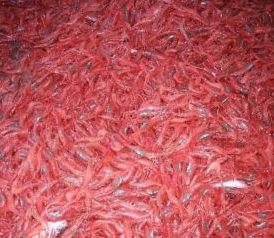
2020 shrimp price disagreement for NL fish harvesters goes to arbitration
There’s 58 cents worth of disagreement over shrimp prices between the union that represents fish harvesters and the organization that represents processors in Newfoundland and Labrador. According to the union, the Association of Seafood Processors (ASP) proposed 70 cents per pound while the FFAW proposed $1.18. The matter is now before the Standing Fish Price Setting Panel, which met today in St. John’s to hear the proposals from both sides.,, The union also said, “This is a challenging year for shrimp, as the market is lower than it was last year.” However, the union also said the 70 cent offer from the ASP “is a price that cannot be justified by any rational assessment of the market.” >click to read< 16:07
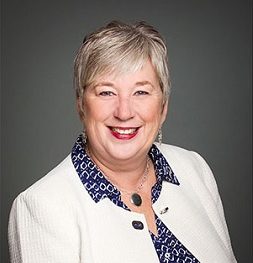
Coronavirus: Atlantic Canada’s fishing industry calls on feds for help
Crab and lobster fisheries throughout Atlantic Canada have faced delayed season openings due to fears about the coronavirus spreading in small communities and close working conditions. A significant drop in prices due to a collapse in retail and restaurant markets in the United States, Japan and China, major export markets for Canada’s seafood, overshadow the start of the season for many. Responding to a question during Tuesday’s virtual House of Commons meeting, Fisheries Minister Bernadette Jordan said support for the industry would be announced in the coming days, but by Thursday no additional details were available. >click to read< 09:09
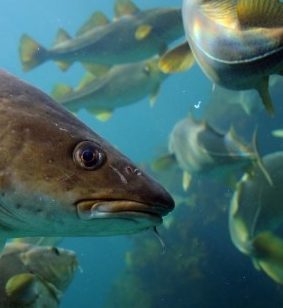
Cod Cannibalism: With natural prey like capelin and shrimp in decline, cod are eating their young
Stalled. That’s how research scientist Karen Dwyer of the Department of Fisheries and Oceans describes the northern cod stock following this year’s assessment. Ecosystem conditions appear to be the main factor, said Dwyer — especially low stocks of capelin and shrimp. “Both of those prey are very important in driving the population dynamics for cod,” she said. While there’s been an increase in different types of zooplankton, Dwyer said, there’s been a decrease in fatty zooplankton. “There used to be large numbers of large fatty zooplankton, full of fat, which are really good for young fish to eat, young fish such as capelin or even young cod,” she said. “Over time they’ve seen a decline in these large fatty zooplankton.” >click to read< 07:18
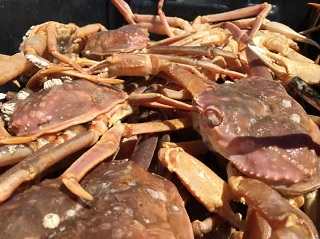
Coronavirus: Fishermen block out-of-province crab shipments heading for N.L. fish plants
It’s the latest development in an argument with the Association for Seafood Producers over whether or not the fishery should be up and running during the COVID-19 pandemic. The Fish, Food and Allied Workers union (FFAW) says its members do not want to go to work on boats or in plants until their safety is assured. “Fish harvesters are mobilizing around the province to block out-of-province crab from landing in Newfoundland and Labrador for processing,” said a statement sent by the FFAW on Sunday night. “Harvesters and plant workers are calling on the provincial government to step in and for companies to respect N.L. workers.” >click to read< 07:40

Trudeau pledges $62.5M for fish and seafood sector amid mounting food supply concerns
Prime Minister Justin Trudeau has announced $62.5 million for Canada’s fish and seafood sector amid mounting concerns over the state of the country’s food supply.,, Keith Sullivan, president of Fish, Food and Allied Workers, a trade union representing 15,000 workers in Newfoundland and Labrador, called the financial relief “encouraging”. “Harvesters from all of Atlantic Canada right across to B.C. have been looking for some relief since the pandemic began,” Sullivan.,, Federal Fisheries Minister Bernadette Jordan said in a Saturday news conference that help for harvesters is on its way. >click to read< 14:00
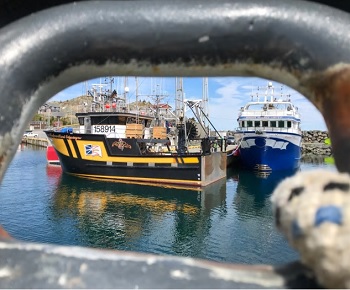
Coronavirus: FFAW calling for delay of crab fishery, NL-FHSA released 12 control measures to prevent spread of virus on fishing vessels
The FFAW’s crab committee chairs met Sunday and voted to delay the fishery opening again. President Keith Sullivan said the recommendation will be sent to the Department of Fisheries and Oceans, who holds the authority to open or delay the fishery. “We have to be able to ensure that we have a safe fishery for everyone involved,” Still, Sullivan said harvesters aren’t ready to call off the 2020 crab fishing season, which employs thousands and is worth more than $300 million, including export value and spin offs.,, Meanwhile, The Fish Harvesting Safety Association (NL-FHSA) has released 12 control measures to prevent the spread of COVID-19 on fishing vessels, if fisheries open later this spring. >click to read< 18:14
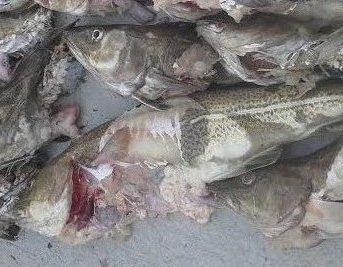
Northern cod growth off NL stalled, latest science indicates
Department of Fisheries and Oceans (DFO) on Friday released it’s latest stock status assessment information on northern cod. “We continue to be concerned about the status of the northern cod stock, which remains in the critical zone,” a technical briefing document states. “Survey indices suggest that recently observed stock growth (2012-2016) may have stalled. Ecosystem conditions indicated limited productivity and reduced food availability may be limiting growth of cod. “The precautionary approach requires that removals be kept at lowest possible levels.” >click to read< Does the precautionary approach include a plan for a major extraction of marine mammals? Asking for a friend. 11:32
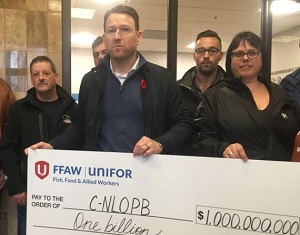
Fisheries union presents giant novelty cheque for $1 billion to C-NLOPB
Days before a C-NLOPB call for bids closes, Newfoundland and Labrador’s largest fisheries union made what president Keith Sullivan called a “last-ditch effort” to stop the process. Sullivan, who leads the Fish Food and Allied Workers, presented an oversized cheque for $1 billion Monday morning at the headquarters of the Canada-Newfoundland and Labrador Offshore Petroleum Board, made out to the board. >click to read< 13:38
FFAW publicity stunt – The Federation of Independent Sea Harvesters of Newfoundland and Labrador (FISH-NL) calls the FFAW-Unifor’s submission of a land bid this morning to protect crab grounds a publicity stunt to deflect attention from the final days of FISH-NL’s membership drive. >click to read<

Police called as FISH-NL execs crash FFAW meeting in Baie Verte – Cleary and Leonard physically forced out
The president of an upstart fisheries union says he didn’t barge in on an meeting in search of a confrontation with the union that represents the province’s in-shore harvesters, but a confrontation is what he got.,,, What ensued was momentary, aggressive chaos, as Cleary shouted “I tell the truth” and “we want a debate,” amid other people yelling and swearing, before meeting attendees physically forced him and Leonard from the room. The RCMP were also called to the incident. >click to read< 16:37
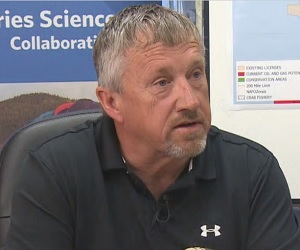
“we’ll go out with our vessels and we’ll get in the way”, FFAW vows to stop oil and gas exploration in crab fishing area
Newfoundland and Labrador’s largest fishermen’s union says oil companies shouldn’t be able to explore in some of the province’s most productive crab fishing areas — and members will stop them if necessary. Last week the C-NLOPB issued a call for nominations, asking oil companies which areas they’d be interested in bidding on. “We are not going to stand by and let someone take our livelihood,” said Fish Food and Allied Workers executive board member Nelson Bussey, who has fished for 43 years, on Thursday. “We’ve put too much into this. It’s our life, it’s our industry and we’re not going to stand by. If we’ve got to do it, we’ll go out with our vessels and we’ll get in the way.” >click to read< 20:36
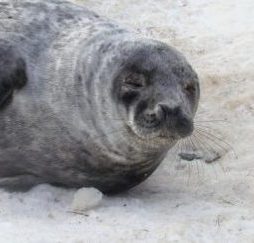
Following seal predation report, FFAW calls for government action
FFAW-Unifor accuses the Department of Fisheries and Oceans of remaining “complacent while evidence mounts that an overpopulation of seals is having a serious impact on important fish species.” A study conducted by DFO shows that a lack of cod recovery in the southern Gulf of St. Lawrence may be caused by predation by grey seals, and could account for up to 50 per cent of natural cod mortality. This is limiting the cod stock’s recovery, DFO said. An assessment predicts a 32 per cent drop in cod numbers over the next four years. >click to read< 10:03






